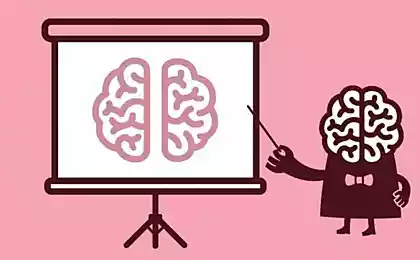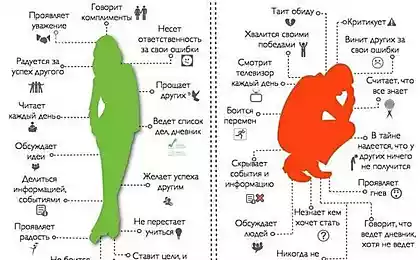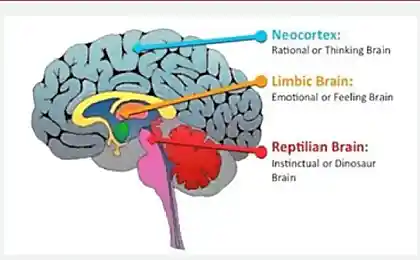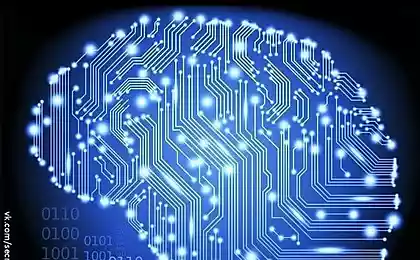526
How to learn faster: 6 ways to adjust the brain to a new
When you're a quick study, it gives you a great competitive advantage. And as proven by science, there are six ways that help you learn and memorize new knowledge faster.
1. Teach others (or just pretend)If you imagine you have to explain to someone else the material or the job that you're doing, it can accelerate learning and retain more, study says scientists from Washington University in St. Louis. This expectation changes your mood, and the brain begins to learn more effectively than when you just have to take a test.
One of the authors of the study John Unstable writes: "When teachers prepare to teach, they are usually looking for key ideas and organize information, giving it a coherent structure. Our results show that the students also begin to apply such techniques effective teaching, if they think they have to teach this stuff".
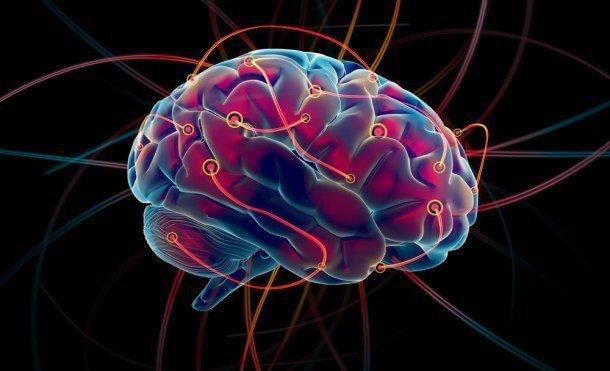
2. Allot for training for short periods of time , the Researchers from LSU suggest to take on learning a new material for 30-50 minutes. Shorter periods of time is not enough, but more than 50 minutes is too much information to the brain is able to perceive it in a row. So, at least take breaks for 5-10 minutes.
And education specialist Neil Starr advises to carry out micro-session: make small cards with the description of more complex concepts and to periodically take them when you get a little break.
3. Take notes by hand On notebook notes lead usually faster, but using pen and paper helps to learn and understand the material. Researchers at Princeton and the University of California found that when students take notes by hand, they actively listen to and better recognize important concepts. And those who lead the notes on the computer, it turns into mindless transcript, and besides, people are distracted, for example, an e-mail.
Professor at Princeton University's pam Mueller writes that those who lead notes on a laptop, worse cope with the conceptual issues; they usually tend to literally record lectures, instead of having to process information and to formulate it in your own words. It is bad for the results.
4. Stretch learning It may seem paradoxical, but we learn faster when we place, we stretch the learning. The author of the book How We Learn: The Surprising Truth About When, Where, and Why It Happens Benedict Carey compares learning with watering her lawn. "You can water the lawn once a week, an hour and a half or three times a week for half an hour. If you will do this three times a week, the grass will be greener".
It is good to remember the material, it is best to repeat it in a day or two after you first got acquainted with him. "The theory is, says Carey, that if you are trying to learn something fast, the brain pays less attention to studies. If you repeat the information a few days or a week, but not immediately, this sends him the signal that this information is still necessary to remember it."

5. Don't be afraid to take a NAP to remember learned, it is important to periodically disconnect. Sleep in between classes, as the study in the journal Psychological Science, helps to better memorize the material, and it is felt even in six months.
In the experiment conducted in France, participants learned to translate 16 French words in Swahili for two classes. Participants of one group were studied first in the morning and then the evening of the same day, and the participants of the second group studied in the evening, then slept, and when morning came on the second lesson. Those who slept were able to recall an average of 10 of the 16 words, and those who are not — only 7.5.
"This shows that to build a dream in the process of learning is doubly useful: it reduces the amount of time it will take to re-mastering the material and helps you remember the material longer, writes the study's author, psychologist, University of Lyon Stephanie Mazza. — Previous studies have shown that sleep after a lesson is useful and now we see that it is still better to sleep between the two sessions."
Reboot: learn quickly to solve problems
10 myths about the order, from which, it's time to get rid of
6. Practice otherwise When you learn new motor skills, it is useful to change the approach to their exercise, write the researchers from Johns Hopkins University: this helps to learn faster. In their experiment, participants had to learn a certain task on the computer, and those who during the second lesson had been used by another, a modified methodology, in the end performed better than those in the second just used the same method.
Writes study leader Pablo Selnik, it is better to at least slightly modify his approach to teaching in different classes than to practice exactly the same a few times in a row.published
Author: Stephanie Vozza
Source: ideanomics.ru/articles/7558
1. Teach others (or just pretend)If you imagine you have to explain to someone else the material or the job that you're doing, it can accelerate learning and retain more, study says scientists from Washington University in St. Louis. This expectation changes your mood, and the brain begins to learn more effectively than when you just have to take a test.
One of the authors of the study John Unstable writes: "When teachers prepare to teach, they are usually looking for key ideas and organize information, giving it a coherent structure. Our results show that the students also begin to apply such techniques effective teaching, if they think they have to teach this stuff".

2. Allot for training for short periods of time , the Researchers from LSU suggest to take on learning a new material for 30-50 minutes. Shorter periods of time is not enough, but more than 50 minutes is too much information to the brain is able to perceive it in a row. So, at least take breaks for 5-10 minutes.
And education specialist Neil Starr advises to carry out micro-session: make small cards with the description of more complex concepts and to periodically take them when you get a little break.
3. Take notes by hand On notebook notes lead usually faster, but using pen and paper helps to learn and understand the material. Researchers at Princeton and the University of California found that when students take notes by hand, they actively listen to and better recognize important concepts. And those who lead the notes on the computer, it turns into mindless transcript, and besides, people are distracted, for example, an e-mail.
Professor at Princeton University's pam Mueller writes that those who lead notes on a laptop, worse cope with the conceptual issues; they usually tend to literally record lectures, instead of having to process information and to formulate it in your own words. It is bad for the results.
4. Stretch learning It may seem paradoxical, but we learn faster when we place, we stretch the learning. The author of the book How We Learn: The Surprising Truth About When, Where, and Why It Happens Benedict Carey compares learning with watering her lawn. "You can water the lawn once a week, an hour and a half or three times a week for half an hour. If you will do this three times a week, the grass will be greener".
It is good to remember the material, it is best to repeat it in a day or two after you first got acquainted with him. "The theory is, says Carey, that if you are trying to learn something fast, the brain pays less attention to studies. If you repeat the information a few days or a week, but not immediately, this sends him the signal that this information is still necessary to remember it."

5. Don't be afraid to take a NAP to remember learned, it is important to periodically disconnect. Sleep in between classes, as the study in the journal Psychological Science, helps to better memorize the material, and it is felt even in six months.
In the experiment conducted in France, participants learned to translate 16 French words in Swahili for two classes. Participants of one group were studied first in the morning and then the evening of the same day, and the participants of the second group studied in the evening, then slept, and when morning came on the second lesson. Those who slept were able to recall an average of 10 of the 16 words, and those who are not — only 7.5.
"This shows that to build a dream in the process of learning is doubly useful: it reduces the amount of time it will take to re-mastering the material and helps you remember the material longer, writes the study's author, psychologist, University of Lyon Stephanie Mazza. — Previous studies have shown that sleep after a lesson is useful and now we see that it is still better to sleep between the two sessions."
Reboot: learn quickly to solve problems
10 myths about the order, from which, it's time to get rid of
6. Practice otherwise When you learn new motor skills, it is useful to change the approach to their exercise, write the researchers from Johns Hopkins University: this helps to learn faster. In their experiment, participants had to learn a certain task on the computer, and those who during the second lesson had been used by another, a modified methodology, in the end performed better than those in the second just used the same method.
Writes study leader Pablo Selnik, it is better to at least slightly modify his approach to teaching in different classes than to practice exactly the same a few times in a row.published
Author: Stephanie Vozza
Source: ideanomics.ru/articles/7558
Studio of 12m2, which has everything for a comfortable life
20 hard truths that no one wants to admit







